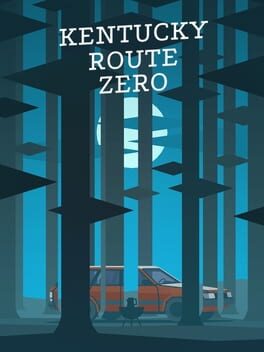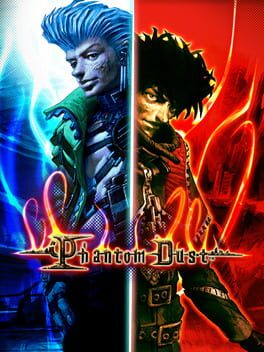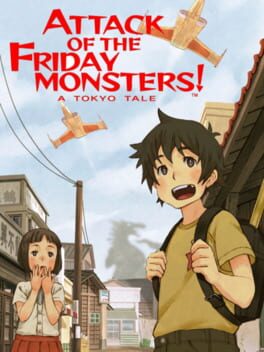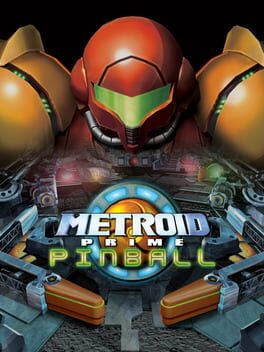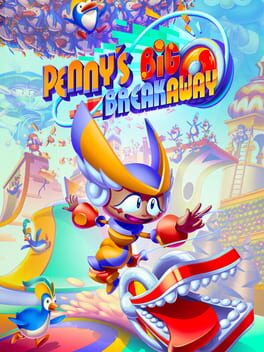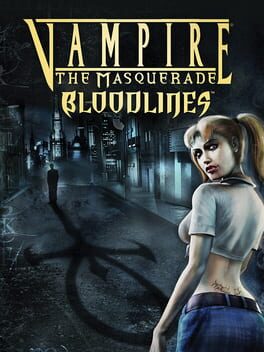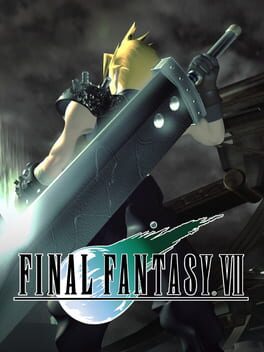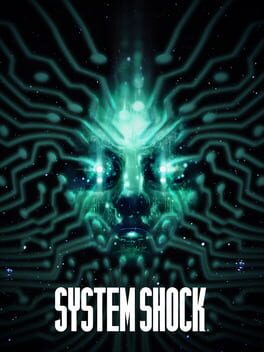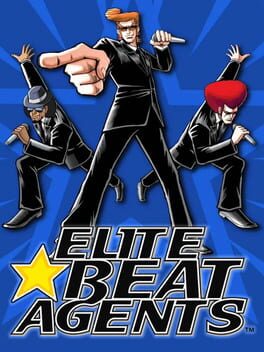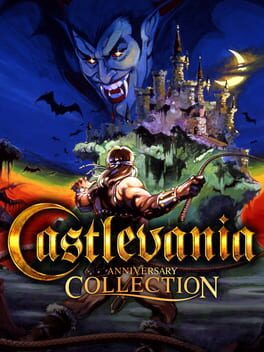big_douglas
2006
The most immediately apparent quality of the games in the Mother series is that they exist in conversation with the JRPG genre they belong to. The games are anti-RPGs as often as they are celebrations of RPGs. They break with undoubtable vision and conviction from the genre's most tired conventions while leaning into some of its worst tendencies. Shigesato Itoi triumphs in using the genre as a vehicle to communicate themes and humor and emotions which are nearly indescribable in their uniquely human character. The games also have the tendency to be opaque and inscrutable in their systems beyond what some of the more frustrating in the genre would even dare. They are soundly, squarely JRPGs, and yet unlike anything else.
The incredible production values and direction make this game a beautiful and compelling experience. The sound design and music are nothing short of the best of the best you'll find. The pixel art is incredibly crisp and beautiful, the animations meticulous and precise. There is a large variety of environments and locations that exhaust the color palette and make for an unpredictable and exciting experience just going through the story. Even the technical method used for displaying dialogue text contributes a ton in delivering memorable and impactful lines through otherwise simple plain text, namely in how parts of a sentence or whole lines can be doled out in a prescribed way for maximum effect.
The combat system is simplified and has other improvements over the one in Mother 2. A new addition is that using regular attacks is something of a rhythm mini-game where you can deal additional damage as long as you continue to press the A button on the beat. This is a genius and fun idea in theory, in practice there are long stretches of the game where I found myself (a hobbyist musician with some semblance of a sense of rhythm and timing) inexplicably unable to get the combo going for more than 3 or 4 hits on a lot of enemies. Putting enemies to sleep gives you the ability to hear the pulse you should be pressing the button to, but that never seemed to help the matter. Whatever the situation is, something about the mechanic seemed off, and I think simplifying it a bit more and being able to get the combo off easier would have done a world of good for that system.
One final note is that the very last thing you do in the game seems it can be easily missed, which is one of the aspects I mentioned earlier where these games tend to almost cruelly try to distance their most heartfelt secrets from the people who would clearly love them most. What is this fear of intimacy the creator has? Mother 2 notoriously has success in its incredible final battle hinge on a mechanic that anyone who hadn't bought the strategy guide could easily miss and give up on regardless of how fully sold on the game they are. I have nothing against quirks in design but sometimes these games take their games with the player a little too far.
Despite any criticism, Mother 3 is an unforgettable, singular experience. It's a game that delivers on the promise video games have to be art and culture, to tell stories which contain real human soul. You have to take these experiences where you can get them.
Thanks are of course always due to the fans who put an enormous effort into the translation that allows more people to experience this beautiful game.
The incredible production values and direction make this game a beautiful and compelling experience. The sound design and music are nothing short of the best of the best you'll find. The pixel art is incredibly crisp and beautiful, the animations meticulous and precise. There is a large variety of environments and locations that exhaust the color palette and make for an unpredictable and exciting experience just going through the story. Even the technical method used for displaying dialogue text contributes a ton in delivering memorable and impactful lines through otherwise simple plain text, namely in how parts of a sentence or whole lines can be doled out in a prescribed way for maximum effect.
The combat system is simplified and has other improvements over the one in Mother 2. A new addition is that using regular attacks is something of a rhythm mini-game where you can deal additional damage as long as you continue to press the A button on the beat. This is a genius and fun idea in theory, in practice there are long stretches of the game where I found myself (a hobbyist musician with some semblance of a sense of rhythm and timing) inexplicably unable to get the combo going for more than 3 or 4 hits on a lot of enemies. Putting enemies to sleep gives you the ability to hear the pulse you should be pressing the button to, but that never seemed to help the matter. Whatever the situation is, something about the mechanic seemed off, and I think simplifying it a bit more and being able to get the combo off easier would have done a world of good for that system.
One final note is that the very last thing you do in the game seems it can be easily missed, which is one of the aspects I mentioned earlier where these games tend to almost cruelly try to distance their most heartfelt secrets from the people who would clearly love them most. What is this fear of intimacy the creator has? Mother 2 notoriously has success in its incredible final battle hinge on a mechanic that anyone who hadn't bought the strategy guide could easily miss and give up on regardless of how fully sold on the game they are. I have nothing against quirks in design but sometimes these games take their games with the player a little too far.
Despite any criticism, Mother 3 is an unforgettable, singular experience. It's a game that delivers on the promise video games have to be art and culture, to tell stories which contain real human soul. You have to take these experiences where you can get them.
Thanks are of course always due to the fans who put an enormous effort into the translation that allows more people to experience this beautiful game.
2013
This review contains spoilers
Kentucky Route Zero is a work of art, abundant with thematic meaning for the player to interpret freely.
It's clear very early on that you likely will never reach your destination in this game, which turns the focus to what the intention is behind that creative choice. The magical realist storytelling puts in question what the nature is of the reality you find yourself in. Route Zero itself is a loop in something of another dimension, reached and navigated by preternatural means. The first thing you find in that surreal place is an odd bureaucracy carrying out the vague and mundane work of "reclamation" of disused places. The other tangible point of interest on the route is a massive storage facility for their paperwork. And yet there is wonder everywhere, small bends in the fabric of reality. What are we supposed to make of all this?
Thematically it is about the search for meaning-- that is, the search itself. Many characters enter the story, and the game at a critical point untethers you from who you think "you" are, from that point having you control and select dialogue options from an array of present characters across its many setpieces. Who you are, who they are, the nature of reality itself, these things are always in flux, and due to your ability to choose from an assortment of contradictory dialogue options at certain points as well, the nature of the individuals themselves and their motivations are even subject to fluid change and interpretation. So what is constant here? The presence of these people, the presence of motivation and destination, the presence of their pasts they carry with them as they go.
It's a story colored by a profoundly deep sense of loss, yet dulled in the way only those who have experienced great loss can know. An almost throwaway line in the last act stopped me in my tracks, "Wouldn't it be nice to be around at the start of something, for a change?". I felt it summarized the whole experience, of people always in the middle of something or picking up pieces in the aftermath.
Though the purgatorial themes of the story are clear and present, the more I played the more I came to a message that put a different perspective on it. See, there are throughout the game ends that are not ends, continuations that are not continuations, explanations that can't be satisfied and satisfactions unexplained. Very much a purgatory, but the other side of it is that there isn't abject misery. Even if the conditions for misery are expressed by the characters as something they've experienced or that exist within living memory, it's not here. A thought started forming for me as I neared the end of this experience, that this really is something of a paradise, and for paradise to exist you don't need the presence of heaven, just the absence of hell. That there may be endings, but as long as these people continue onward, as long as they have something in their sights and experiences to have, there is a future, always a single unbending beam of hope.
It's clear very early on that you likely will never reach your destination in this game, which turns the focus to what the intention is behind that creative choice. The magical realist storytelling puts in question what the nature is of the reality you find yourself in. Route Zero itself is a loop in something of another dimension, reached and navigated by preternatural means. The first thing you find in that surreal place is an odd bureaucracy carrying out the vague and mundane work of "reclamation" of disused places. The other tangible point of interest on the route is a massive storage facility for their paperwork. And yet there is wonder everywhere, small bends in the fabric of reality. What are we supposed to make of all this?
Thematically it is about the search for meaning-- that is, the search itself. Many characters enter the story, and the game at a critical point untethers you from who you think "you" are, from that point having you control and select dialogue options from an array of present characters across its many setpieces. Who you are, who they are, the nature of reality itself, these things are always in flux, and due to your ability to choose from an assortment of contradictory dialogue options at certain points as well, the nature of the individuals themselves and their motivations are even subject to fluid change and interpretation. So what is constant here? The presence of these people, the presence of motivation and destination, the presence of their pasts they carry with them as they go.
It's a story colored by a profoundly deep sense of loss, yet dulled in the way only those who have experienced great loss can know. An almost throwaway line in the last act stopped me in my tracks, "Wouldn't it be nice to be around at the start of something, for a change?". I felt it summarized the whole experience, of people always in the middle of something or picking up pieces in the aftermath.
Though the purgatorial themes of the story are clear and present, the more I played the more I came to a message that put a different perspective on it. See, there are throughout the game ends that are not ends, continuations that are not continuations, explanations that can't be satisfied and satisfactions unexplained. Very much a purgatory, but the other side of it is that there isn't abject misery. Even if the conditions for misery are expressed by the characters as something they've experienced or that exist within living memory, it's not here. A thought started forming for me as I neared the end of this experience, that this really is something of a paradise, and for paradise to exist you don't need the presence of heaven, just the absence of hell. That there may be endings, but as long as these people continue onward, as long as they have something in their sights and experiences to have, there is a future, always a single unbending beam of hope.
2022
By showing you things you find familiar, Tunic tells you what it isn't.
When Tunic begins, you're a fox in a Tunic waking up on a beach. Anyone in my age group and, perhaps some younger cohort I can't really extrapolate the lived experience of, will immediately think, "Oh, I'm playing Link's Awakening". When you get a few steps into the game your first goal becomes clear, you're to ring two bells, each in different locations. To gamers of any age, this information communicates to you that you are also playing Dark Souls. But by telling you this so immediately and so begging-for-a-lawsuit brazenly, Tunic is making clear that it is neither Link's Awakening nor Dark Souls. By this point in the game it has, however, shown you what it is-- a game about an instruction booklet.
Tunic strives to capture the experience, perhaps most concretely, of a child who grew up with a love for gaming and a mother tongue that no one in the games industry had a love for localizing. Left to their own devices, these kids had to rely on careful reading of every available context, poring over the included instruction manual for every game when stuck in any seemingly impossible impass. When Tunic shows you a Link fox with a Dark Souls combat set, it's telling you that you already know what's going on, and encouraging you to focus on what the game instead is really about, which is the experience of the unbridled joy that games can bring in the form of discovery.
Impressively, Tunic's combat system and enemies are finely tuned to be challenging yet fair. Its interconnected world maybe not perfect, but designed well enough for the player to internalize and familiarize themselves with. It has plenty of depth, but doesn't overstay its welcome when you feel satisfied and ready to beat it. Tunic is a gamer's game.
When Tunic begins, you're a fox in a Tunic waking up on a beach. Anyone in my age group and, perhaps some younger cohort I can't really extrapolate the lived experience of, will immediately think, "Oh, I'm playing Link's Awakening". When you get a few steps into the game your first goal becomes clear, you're to ring two bells, each in different locations. To gamers of any age, this information communicates to you that you are also playing Dark Souls. But by telling you this so immediately and so begging-for-a-lawsuit brazenly, Tunic is making clear that it is neither Link's Awakening nor Dark Souls. By this point in the game it has, however, shown you what it is-- a game about an instruction booklet.
Tunic strives to capture the experience, perhaps most concretely, of a child who grew up with a love for gaming and a mother tongue that no one in the games industry had a love for localizing. Left to their own devices, these kids had to rely on careful reading of every available context, poring over the included instruction manual for every game when stuck in any seemingly impossible impass. When Tunic shows you a Link fox with a Dark Souls combat set, it's telling you that you already know what's going on, and encouraging you to focus on what the game instead is really about, which is the experience of the unbridled joy that games can bring in the form of discovery.
Impressively, Tunic's combat system and enemies are finely tuned to be challenging yet fair. Its interconnected world maybe not perfect, but designed well enough for the player to internalize and familiarize themselves with. It has plenty of depth, but doesn't overstay its welcome when you feel satisfied and ready to beat it. Tunic is a gamer's game.
2017
Since the HD remaster of Phantom Dust is currently free on PC, it's an easy proposition to give it a try at least. The game is a 3D action battle game, with the key draw to it being that it uses card game mechanics for its combat. The implementation of these mechanics is very well done and fun, with tons of possibility for depth and variation as the player becomes more skilled.
I played the campaign for several hours, past the stage where you can start building your own "decks", and I feel I can comfortably shelve the game where I stopped. The reason is that, although it's an enjoyable game, there are a few key weak points to its design from a modern perspective. The enemy AI often is not very aggressive, leading to battles mainly playing out in familiar cycles of hovering around the area where your "cards" spawn and repeating some simple strategies. The multiplayer aspect of the game would obviously change that a lot, but for the campaign there could at least have been the possibility of somewhat randomizing the spawn points of cards in order to keep you on the move and engaged with navigating the arena.
It's a fun game and a great idea, but one that was ahead of its time. It would really soar with a modern sequel of some sort.
I played the campaign for several hours, past the stage where you can start building your own "decks", and I feel I can comfortably shelve the game where I stopped. The reason is that, although it's an enjoyable game, there are a few key weak points to its design from a modern perspective. The enemy AI often is not very aggressive, leading to battles mainly playing out in familiar cycles of hovering around the area where your "cards" spawn and repeating some simple strategies. The multiplayer aspect of the game would obviously change that a lot, but for the campaign there could at least have been the possibility of somewhat randomizing the spawn points of cards in order to keep you on the move and engaged with navigating the arena.
It's a fun game and a great idea, but one that was ahead of its time. It would really soar with a modern sequel of some sort.
Played this on my DS parallel to my playthrough of Metroid Prime Remastered on the Switch. In theory it sounds like a logical pairing but in practice it feels kind of unhinged.
The game itself is pretty fun, there's some good variation in the levels and the way it follows the gameplay of its source material is a cool choice. I suck at pinball too much to beat it but I did see a good deal of it before putting it down. It's good enough quality that I'll likely pick it up when I want to play some pinball in the future.
The game itself is pretty fun, there's some good variation in the levels and the way it follows the gameplay of its source material is a cool choice. I suck at pinball too much to beat it but I did see a good deal of it before putting it down. It's good enough quality that I'll likely pick it up when I want to play some pinball in the future.
At the time of this review, I’d have to recommend waiting for a sale, mainly because there will hopefully be patches by then. I had my share of fun all the way to the game’s completion, but as it stands the game is plagued with a lot of collision and animation bugs. You’ll often get stuck in level geometry or fall into the abyss.
I’ll take up some positives. The most important element of the game, the movement, is masterful. It takes a little while to learn but once you do it’s really satisfying, and you’ll find that you’re able to swing your way out of seemingly hopeless predicaments. The visual style is also great, reminds me personally of Megaman 64 which I rented a lot as a kid. The soundtrack is also another great work by Tee Lopes.
The main issues with the game could be sorted into what could be fixed and what couldn’t. The bugs can be fixed. Some elements in the levels could be adjusted, such as hazards that are difficult to see.
What can’t be adjusted are a lot of the level design choices, which could be perhaps best described as caused by a confused design philosophy. There’s a timer counting up and a score system, is the player supposed to be using the great moveset to zip through the level, or should they be systematically platforming and exploring around to find the often well-hidden side-quests and collectibles? Should a quick-witted player be able to grab everything in the first run, or will multiple attempts be needed? If so, why does the game alternate between both? Is the game about encouraging quick-witted nimbleness and momentum, or throwing water on the player with dull and punishing hazards? The water torrents are such an example, getting caught in one either drops you down into an abyss or deposits you to the bottom of a pool you can only sluggishly walk your way out of. Is it really more fun for lava to be instant death rather maybe cause a single merciful bounce first? All of this is further complicated by a lack of visual clarity that often makes it hard to judge exactly where Penny is in the moment, usually because the camera angle is not very well situated. The boss designs are similarly poor and feel rushed.
It’s a shame because very often the game feels awesome to play, with great designs that have you dashing and swinging acrobatically through a course. It’s the fact that you’re often brought to complete halt for bad reasons that makes it unfortunate that the game hasn’t really fulfilled its promise.
I’ll take up some positives. The most important element of the game, the movement, is masterful. It takes a little while to learn but once you do it’s really satisfying, and you’ll find that you’re able to swing your way out of seemingly hopeless predicaments. The visual style is also great, reminds me personally of Megaman 64 which I rented a lot as a kid. The soundtrack is also another great work by Tee Lopes.
The main issues with the game could be sorted into what could be fixed and what couldn’t. The bugs can be fixed. Some elements in the levels could be adjusted, such as hazards that are difficult to see.
What can’t be adjusted are a lot of the level design choices, which could be perhaps best described as caused by a confused design philosophy. There’s a timer counting up and a score system, is the player supposed to be using the great moveset to zip through the level, or should they be systematically platforming and exploring around to find the often well-hidden side-quests and collectibles? Should a quick-witted player be able to grab everything in the first run, or will multiple attempts be needed? If so, why does the game alternate between both? Is the game about encouraging quick-witted nimbleness and momentum, or throwing water on the player with dull and punishing hazards? The water torrents are such an example, getting caught in one either drops you down into an abyss or deposits you to the bottom of a pool you can only sluggishly walk your way out of. Is it really more fun for lava to be instant death rather maybe cause a single merciful bounce first? All of this is further complicated by a lack of visual clarity that often makes it hard to judge exactly where Penny is in the moment, usually because the camera angle is not very well situated. The boss designs are similarly poor and feel rushed.
It’s a shame because very often the game feels awesome to play, with great designs that have you dashing and swinging acrobatically through a course. It’s the fact that you’re often brought to complete halt for bad reasons that makes it unfortunate that the game hasn’t really fulfilled its promise.
Vampire is a video game adaptation of a tabletop rpg, so it has a lot of great implementations of that style of game mechanics and giving you many ways to react to and shape situations according to how you want to play. The main story/mechanics of the game are as follows: the "masquerade" is what vampires call keeping knowledge of vampires away from humankind. Because vampires are vastly outnumbered, it would be a death sentence if ever it became known to humans at large that they exist, so violating the masquerade is dealt with harshly. You can get 5 strikes before it's game over (there are a couple times in the game where it is possible to redeem a violation). Also being a vampire, you need to drink blood to live, which is also sort of like your Mana for your special abilities. You also have a mechanic called Humanity, which all vampires must keep high or their beastly nature takes over. Practically what this means is as it falls you will lose control of your character at times and they will attack others, risking retaliation or even Masquerade violation.
When you start out you can either answer a stylized "questionnaire" that will pick a Clan and assign your skill points for you, or you can do it yourself. Clans are different types of vampire with different special abilities, strength/weaknesses, and traits that make their playstyle unique and even affect how others interact with you. For example the one I picked was one of the most "human-like" ones and sort of seductive in nature, so I could drink blood out in the open from people I had seduced without consequences (just looks like we're necking I suppose) and all my humanity losses and gains were doubled. Which makes sense, if I'm the most human-like type then it would make sense that being more human was easier, and doing inhumane things had a harder impact on me. So it really incentivizes me to play to my Clan strengths.
The cool stuff:
About blood-- it's a really well implemented rpg mechanic because it's an extremely useful resource and also not very easy to get, so without realizing it I was starting to think like a vampire while playing, taking note of when npcs would turn down dark alleyways alone so I could sneak up in the shadows and get a little refill. So simple yet really well executed.
The world is not really "open" but more of these individual little hubs that you get access to as the game progresses. What the game does really well, and which is one of my favorite things in games that pull it off, is in making every place in the world matter and having you familiarize yourself with it. When you get a quest there's not an icon or a marker or even a map menu, your quest description just tells you what the name of the place is you have to go to and in which "hub". If you need to go to the Lucky Star Motell, you're going to scan your surroundings and see the star sign down the street and start heading that way, and you'll be checking out and making a note of the places you pass on the way. Since all of these areas are small, like maybe a small city block, it never feels overwhelming at all.
There are a lot of places where your skills and playstyle allow you to progress in a mission or solve a problem in a way that you find satisfying, you can hack computers and sneak your way around an area or you can go in guns blazing, you can bypass places by having a high lockpick skill, you can notice a hidden key or environment detail if you have the perception skill for it, etc. You can have the persuasion or intimidation chops to peacefully talk your way out of a conflict or you can sometimes even turn down entire missions if you just don't think your character would go along with them.
The vibe of the world rules too, it's kind of bare at first but the music and sound design rule and make this very unique environment where you're walking around a world that has traffic and city nightlife sounds happening while you're fully aware that cars never drive down the road in the game. You just don't care because it somehow just all meshes. The voice acting also rules, sometimes it's really well done and even when it's not it has this exaggerated and almost cartoonish style that very much feels like the voice actors were having a blast just going ham on these characters.
The not cool stuff:
Like a lot of games, the devs didn't have a lot of time to finish this game, so certain rpg aspects especially towards the end were neglected and a higher emphasis on combat put in their place, which was not the intention to begin with. Since my character wasn't cut out for that I ended up kind of having to do a simple cheat towards the final hours which made me invisible to enemies. It kind of sucks to have to do that to keep enjoying it, but it honestly doesn't feel too bad to skip the unfun stuff so you can do the fun stuff instead.
Combat itself is also not great, think that this game came out 4 years before Fallout 3 and was made on a much smaller scale. It's not always awful but clearing combat areas never feels fun, more like something you're relieved you got past.
The unofficial patch is mandatory pretty much, and even adds a way to skip the worst level in the game and possibly any game, the Warrens, which is extremely long and convoluted and just sucks the life out of you. There's another bs level you can't really skip with a very unbalanced enemy that you have to somehow defeat in a very inscrutible way, that it's worth looking up how to deal with as well. It's a very small part of the game but unforgivingly brutal. I almost failed it even with invisibility!
----
The game is really good overall, and with the little tips I mentioned it's very enjoyable and replayable. Games like this might be showing their age but really they don't make em like this much anymore, and it says something that this game still has a very active and dedicated cult fanbase to it. I also like the variety in playstyles, there are two REALLY different Clans from the others for example which you shouldn't pick at first, one called the Nosferatu where you basically have to live in the sewers and eat rats because you look to horrifying to pass into human society like the others, and one that is like some kind of insane clairvoyant type vampire that gets a ton of unique interactions and dialogue options because you can kind of see things from the future you don't really understand.
If you like games like New Vegas for their roleplaying and being able to make decisions and steer the outcome you want in the game between different factions, definitely give this a try. Think of it as NV on a small scale. It's not very long, even while taking my sweet time and taking care of a baby while letting the game run steam has me at 26 hours on it.
When you start out you can either answer a stylized "questionnaire" that will pick a Clan and assign your skill points for you, or you can do it yourself. Clans are different types of vampire with different special abilities, strength/weaknesses, and traits that make their playstyle unique and even affect how others interact with you. For example the one I picked was one of the most "human-like" ones and sort of seductive in nature, so I could drink blood out in the open from people I had seduced without consequences (just looks like we're necking I suppose) and all my humanity losses and gains were doubled. Which makes sense, if I'm the most human-like type then it would make sense that being more human was easier, and doing inhumane things had a harder impact on me. So it really incentivizes me to play to my Clan strengths.
The cool stuff:
About blood-- it's a really well implemented rpg mechanic because it's an extremely useful resource and also not very easy to get, so without realizing it I was starting to think like a vampire while playing, taking note of when npcs would turn down dark alleyways alone so I could sneak up in the shadows and get a little refill. So simple yet really well executed.
The world is not really "open" but more of these individual little hubs that you get access to as the game progresses. What the game does really well, and which is one of my favorite things in games that pull it off, is in making every place in the world matter and having you familiarize yourself with it. When you get a quest there's not an icon or a marker or even a map menu, your quest description just tells you what the name of the place is you have to go to and in which "hub". If you need to go to the Lucky Star Motell, you're going to scan your surroundings and see the star sign down the street and start heading that way, and you'll be checking out and making a note of the places you pass on the way. Since all of these areas are small, like maybe a small city block, it never feels overwhelming at all.
There are a lot of places where your skills and playstyle allow you to progress in a mission or solve a problem in a way that you find satisfying, you can hack computers and sneak your way around an area or you can go in guns blazing, you can bypass places by having a high lockpick skill, you can notice a hidden key or environment detail if you have the perception skill for it, etc. You can have the persuasion or intimidation chops to peacefully talk your way out of a conflict or you can sometimes even turn down entire missions if you just don't think your character would go along with them.
The vibe of the world rules too, it's kind of bare at first but the music and sound design rule and make this very unique environment where you're walking around a world that has traffic and city nightlife sounds happening while you're fully aware that cars never drive down the road in the game. You just don't care because it somehow just all meshes. The voice acting also rules, sometimes it's really well done and even when it's not it has this exaggerated and almost cartoonish style that very much feels like the voice actors were having a blast just going ham on these characters.
The not cool stuff:
Like a lot of games, the devs didn't have a lot of time to finish this game, so certain rpg aspects especially towards the end were neglected and a higher emphasis on combat put in their place, which was not the intention to begin with. Since my character wasn't cut out for that I ended up kind of having to do a simple cheat towards the final hours which made me invisible to enemies. It kind of sucks to have to do that to keep enjoying it, but it honestly doesn't feel too bad to skip the unfun stuff so you can do the fun stuff instead.
Combat itself is also not great, think that this game came out 4 years before Fallout 3 and was made on a much smaller scale. It's not always awful but clearing combat areas never feels fun, more like something you're relieved you got past.
The unofficial patch is mandatory pretty much, and even adds a way to skip the worst level in the game and possibly any game, the Warrens, which is extremely long and convoluted and just sucks the life out of you. There's another bs level you can't really skip with a very unbalanced enemy that you have to somehow defeat in a very inscrutible way, that it's worth looking up how to deal with as well. It's a very small part of the game but unforgivingly brutal. I almost failed it even with invisibility!
----
The game is really good overall, and with the little tips I mentioned it's very enjoyable and replayable. Games like this might be showing their age but really they don't make em like this much anymore, and it says something that this game still has a very active and dedicated cult fanbase to it. I also like the variety in playstyles, there are two REALLY different Clans from the others for example which you shouldn't pick at first, one called the Nosferatu where you basically have to live in the sewers and eat rats because you look to horrifying to pass into human society like the others, and one that is like some kind of insane clairvoyant type vampire that gets a ton of unique interactions and dialogue options because you can kind of see things from the future you don't really understand.
If you like games like New Vegas for their roleplaying and being able to make decisions and steer the outcome you want in the game between different factions, definitely give this a try. Think of it as NV on a small scale. It's not very long, even while taking my sweet time and taking care of a baby while letting the game run steam has me at 26 hours on it.
2012
This Switch version of the game is a perfectly fine one to play, and easy to recommend. Played it to get refreshed on a game I've loved since it came out in '97 and played so much with my friend that our eyes bled. It's ambitious, creative, unique, and odd in ways that we've rarely seen in the world of video games. Even though it was surpassed by VIII from a technical standpoint soon after, and further by IX in the realm of visuals, character development, and storytelling, it has stood the test of time on the strengths of its plot, characters, and just being cool as hell.
Part of my reason for a replay was to be prepared to finally get around to the Remake, but all I could think about while playing was how the game doesn't need remaking at all, it's so engaging and approachable right away.
Part of my reason for a replay was to be prepared to finally get around to the Remake, but all I could think about while playing was how the game doesn't need remaking at all, it's so engaging and approachable right away.
1993
2023
System Shock is a game that immerses the player by setting them loose in a space station with little idea of what is going on or what to do. Because the player must explore the station in order to gain that information, and since the station has been overrun with horrible cyborg mutants, there is a real tension and physicality to the player's interaction with, and understanding of, the game world. There's no glowing marker telling you where to go next, and as such the player must learn the world intimately and keep their eyes open and mind engaged, likely even keeping a notebook while playing.
The System Shock Remake is visually an incredible game, not only doing justice to the original game's design but also just being one of the most stunningly cool and beautiful looking games in modern times. The sound design and music have gotten mixed reception but I personally really liked it and thought the music was great.
In terms of gameplay an approach was taken that kept a lot of the essence of the original game while updating it with what 30 years of game design development in the industry could aid the aging game with. The inventory system is snappy and intuitive, with additional options added in the remake to lighten some headaches and make once useless items more useful.
The story is compelling and the method in which it is told has been made almost a standard for story-driven isolated experiences ever since.
While my enjoyment of the game had its ups and downs throughout, in many of my play sessions I found myself having a total blast and thinking to myself "I am LOVING this", doesn't that deserve a high rating?
The System Shock Remake is visually an incredible game, not only doing justice to the original game's design but also just being one of the most stunningly cool and beautiful looking games in modern times. The sound design and music have gotten mixed reception but I personally really liked it and thought the music was great.
In terms of gameplay an approach was taken that kept a lot of the essence of the original game while updating it with what 30 years of game design development in the industry could aid the aging game with. The inventory system is snappy and intuitive, with additional options added in the remake to lighten some headaches and make once useless items more useful.
The story is compelling and the method in which it is told has been made almost a standard for story-driven isolated experiences ever since.
While my enjoyment of the game had its ups and downs throughout, in many of my play sessions I found myself having a total blast and thinking to myself "I am LOVING this", doesn't that deserve a high rating?
2020
A very impressive game in terms of its scope and the robust nature of its systems, after beating it I'm already thinking about what I'd like to do in future playthroughs.
I will say though that as a person who is pretty directly the target audience for this-- I grew up playing the original Baldur's Gate and have played both D:OS games, as well as having played a campaign of D&D 5e before, I did find some of the mechanisms of this game kind of hard to parse, such as how many times or when you can long rest before it becomes a problem for some story event.
I also think the ending section of the game is disappointing in terms of the polish and quality to its production. It's the grandest section of the game and feels like it didn't get enough effort and care, especially due to how sparse the audio design is. Also got frequent visual bugs during it. I do think the final confrontations are satisfying but can't say I'm not disappointed that such a high quality product leaves its endings like it does.
I will say though that as a person who is pretty directly the target audience for this-- I grew up playing the original Baldur's Gate and have played both D:OS games, as well as having played a campaign of D&D 5e before, I did find some of the mechanisms of this game kind of hard to parse, such as how many times or when you can long rest before it becomes a problem for some story event.
I also think the ending section of the game is disappointing in terms of the polish and quality to its production. It's the grandest section of the game and feels like it didn't get enough effort and care, especially due to how sparse the audio design is. Also got frequent visual bugs during it. I do think the final confrontations are satisfying but can't say I'm not disappointed that such a high quality product leaves its endings like it does.
2006
Hard to emphasize enough just how silly this game is and what a genius idea it is too. The gameplay is really tough but mainly fair, the comic book illustrations are goofy and even heartwarming at times (and in the case of a sort of christmas themed level, a bizarre tonal whiplash that had me honking like a damn goose)
The collection itself is very well executed, including the original Japanese versions of the games alongside a first-ever English localization of Kid Dracula. The inclusion of the option for creating save states and different picture modes gives it a decent amount of flexibility for the player to get the best experience they can out of it.
Catlevania
Personally I went into it without any experience of the series and didn't know the Japanese versions are superior, so the difficulty of the first three bucked me off the games usually around 75% of the way in. This first game has such great music and atmosphere, controlling the character felt good but some stuff felt not really fine-tuned in the levels and veered into "this is bs" territory. I still feel a compulsion to beat it so I definitely will one day soon.
Castelvania II
Simon's Quest was initially much more fun and interesting to me than the first. The fact that someone had the realization this early on that an explorable world with non-enemy npcs and more of a present story in the world would be the way to go for the series was really impressive. It became sort of cumbersome to navigate and figure out though.
Castlevania III
Huge leap in every regard, the boss designs especially soar. The flexibility of being able to switch characters and alter your playthrough by taking different paths really make it timelessly enjoyable.
Castlevania IV
A departure aesthetically in many regards but I really liked it just the same. Sometimes the difficulty spikes would get really nuts for someone like me who isn't exactly excellent with reflexes.
Vampire Killer
Maybe my favorite of the collection, and the only one I fully beat. So creative and the fights felt really tough but actually were well-tuned enough to feel fair. In previous games it seemed sometimes like they didn't have a winning strategy in mind when designing a boss and just figured a skilled enough player would be able to make one up on their own. The visual tricks and variation in the level designs make it a premium experience.
Castlevania: The Adventure
Lots of cool stuff going on and good level design, but the performance is horrible (it was originally as well so this is just an accurate emulation) and the hitboxes on some enemies is truly whack. It's a learning experience in itself to try and figure out just how far outside the actual pixels of an enemy their hits will land. I made it to the final form of the last boss but after a few attempts figured I should move on.
Belmont's Revenge
If you can only play one of the GB games, play this one. Performs great, looks amazing, great level design, cool bosses.
Kid Dracula
Aesthetically really fun and cool, but gameplay wise it's kind of bs in my view. The game is a lot about failing over and over to learn exactly when and where something is going to shoot across the screen and knock you to your death, and that amount of backtracking after getting killed by something you had little chance of reacting to was not a great feeling.
The bonus art book with interviews and gameplay tips is a recommended read to, especially before you play the games because there are some vital bits of gameplay mechanics tips in there.
Catlevania
Personally I went into it without any experience of the series and didn't know the Japanese versions are superior, so the difficulty of the first three bucked me off the games usually around 75% of the way in. This first game has such great music and atmosphere, controlling the character felt good but some stuff felt not really fine-tuned in the levels and veered into "this is bs" territory. I still feel a compulsion to beat it so I definitely will one day soon.
Castelvania II
Simon's Quest was initially much more fun and interesting to me than the first. The fact that someone had the realization this early on that an explorable world with non-enemy npcs and more of a present story in the world would be the way to go for the series was really impressive. It became sort of cumbersome to navigate and figure out though.
Castlevania III
Huge leap in every regard, the boss designs especially soar. The flexibility of being able to switch characters and alter your playthrough by taking different paths really make it timelessly enjoyable.
Castlevania IV
A departure aesthetically in many regards but I really liked it just the same. Sometimes the difficulty spikes would get really nuts for someone like me who isn't exactly excellent with reflexes.
Vampire Killer
Maybe my favorite of the collection, and the only one I fully beat. So creative and the fights felt really tough but actually were well-tuned enough to feel fair. In previous games it seemed sometimes like they didn't have a winning strategy in mind when designing a boss and just figured a skilled enough player would be able to make one up on their own. The visual tricks and variation in the level designs make it a premium experience.
Castlevania: The Adventure
Lots of cool stuff going on and good level design, but the performance is horrible (it was originally as well so this is just an accurate emulation) and the hitboxes on some enemies is truly whack. It's a learning experience in itself to try and figure out just how far outside the actual pixels of an enemy their hits will land. I made it to the final form of the last boss but after a few attempts figured I should move on.
Belmont's Revenge
If you can only play one of the GB games, play this one. Performs great, looks amazing, great level design, cool bosses.
Kid Dracula
Aesthetically really fun and cool, but gameplay wise it's kind of bs in my view. The game is a lot about failing over and over to learn exactly when and where something is going to shoot across the screen and knock you to your death, and that amount of backtracking after getting killed by something you had little chance of reacting to was not a great feeling.
The bonus art book with interviews and gameplay tips is a recommended read to, especially before you play the games because there are some vital bits of gameplay mechanics tips in there.
2022
Citizen Sleeper succeeds due to its great writing and compelling tabletop gameplay system. The themes at play aren't anything new for science fiction, but the way these many stories unfold is nothing less than great quality storytelling. I've currently done more or less everything that can be done in the game, and am eagerly awaiting the final chapter of the story expansion they've added.
A note about the Switch version-- the initial loading times are very long and performance while scrolling the map is horrible. One video I saw that measured fps while playing the game saw it dipping into the 20s and teens, which in practice makes the screen look jittery and blurry at the same time. It's not a dealbreaker but definitely a drawback.
A note about the Switch version-- the initial loading times are very long and performance while scrolling the map is horrible. One video I saw that measured fps while playing the game saw it dipping into the 20s and teens, which in practice makes the screen look jittery and blurry at the same time. It's not a dealbreaker but definitely a drawback.

